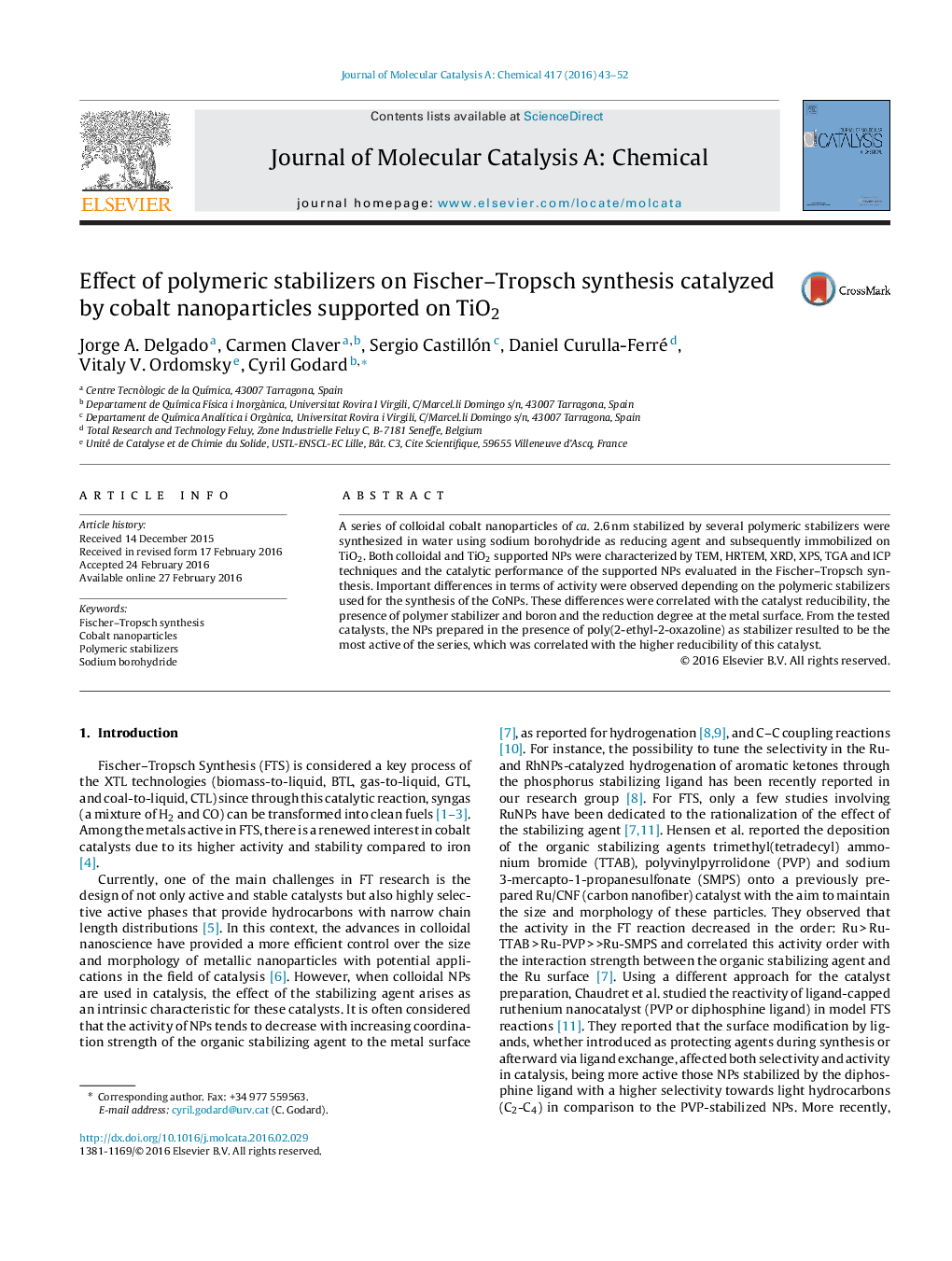| Article ID | Journal | Published Year | Pages | File Type |
|---|---|---|---|---|
| 64641 | Journal of Molecular Catalysis A: Chemical | 2016 | 10 Pages |
A series of colloidal cobalt nanoparticles of ca. 2.6 nm stabilized by several polymeric stabilizers were synthesized in water using sodium borohydride as reducing agent and subsequently immobilized on TiO2. Both colloidal and TiO2 supported NPs were characterized by TEM, HRTEM, XRD, XPS, TGA and ICP techniques and the catalytic performance of the supported NPs evaluated in the Fischer–Tropsch synthesis. Important differences in terms of activity were observed depending on the polymeric stabilizers used for the synthesis of the CoNPs. These differences were correlated with the catalyst reducibility, the presence of polymer stabilizer and boron and the reduction degree at the metal surface. From the tested catalysts, the NPs prepared in the presence of poly(2-ethyl-2-oxazoline) as stabilizer resulted to be the most active of the series, which was correlated with the higher reducibility of this catalyst.
Graphical abstractFigure optionsDownload full-size imageDownload high-quality image (193 K)Download as PowerPoint slide
